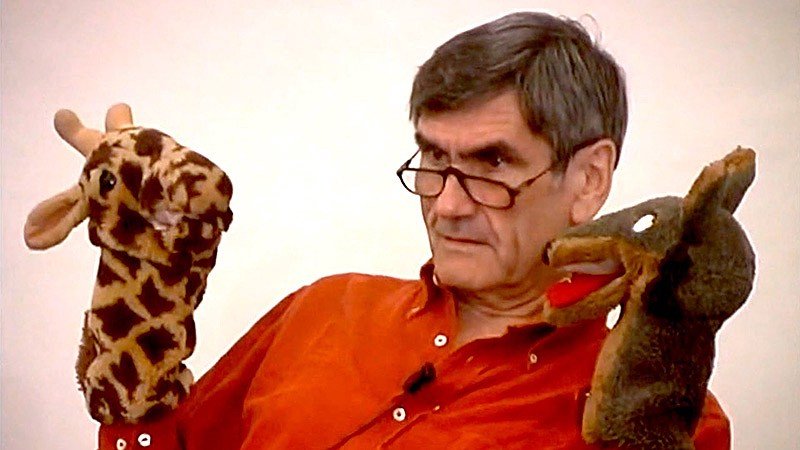Back to Basics
This past week when I drove to the farm to pick up some goodies I decided to listen to a Marshall recording. (Marshall Rosenberg, PhD, the developer of the work of Nonviolent Communication (NVC)). It is from a series he recorded at Findhorn Ecovillage –an intentional community in Scotland where he was invited to teach years ago.
I listen to Marshall teaching from time to time, hearing new gems of wisdom each time. This time I chose to listen from the beginning, revisiting the basics. I am a big fan (read groupie) of Marshall for many reasons, one is steeping in the simplicity of his teaching. Rather than saying, “Okay we are going to begin with observations, open your notebooks to page 1”, he invites the participants to just get started. He just begins.
This is how he did it in this class.
After being introduced, he said hello, sang a song, offered a joke or two about his process of wanting to understand the cultural norms of communication. He wove in a few stories about his family describing his attempts to shift his relationships as he was studying and learning about the impact of the competitive and punitive culture he experienced since a young child. He offered the context of NVC and the ‘why’ behind the structure of the work, and then began to weave in the ‘how to’.
He simply began with a question: “Who has a situation in their lives where they find themselves struggling (whether a good deal or just a seemingly small deal) with someone in their life?” He suggested participants to write it down in their notebooks. Then he invited individuals to share with the group, what did the person say or do that the person in the class was struggling with.
There were three or four participants that stood up and shared. Here were two of the responses I remember:
My partner gets so defensive when…
My husband complains…
With each person that stood and shared with him, Marshall had this way of repeating what the person said and then asserted that they didn’t answer his question. That didn’t answer my question. He would repeat his question, ‘what did they say or do that you didn’t like?” It would take a good deal of discussion to guide the participant to actually say what their person said or did, rather than offer their interpretation or assessment of what they did.
Another piece that was interesting to me is that at the Findhorn Community they have studied Nonviolent Communication and still most forgot or never really got the difference between and observation of what happened and the interpretation which is the meaning we make about the actions of another.
Here’s why this important.
When you want to understand more about why someone chose to say or do something, beginning with your story that they are complaining, you are communicating a few things which will likely result in a defensive response, more disconnection and distance, making the conversation more difficult that it needs to be or that you want it to be. Conversely, beginning with what you actually observed, a direct quote or specific description, they might remember the event and agree it was true. Following that up with how your felt/feel about it, will bring them closer to your experience, without hearing blame, especially if you refer to what’s important to you about it –the experience you want to create with them.
I’m getting ahead of myself, preferring to keep this focused on observations.
If you begin your conversation with your belief that the person is defensive, they are more likely to continue to defend. If you can’t remember the actual thing they said, perhaps referring to the conversation and ask them what was happening for them. Begin with empathy. Something like “I think the conversation we had last night might have been difficult, would you like to share more about that with me?” [Read more about instant empathy here --Tell Me More].
Back to the purpose of this particular blog article which is twofold:
One is a reminder that we often confuse observations with our interpretations without the awareness that we are doing it. When I teach and point this out, the replies are that people think they shared an observation. I encourage you to check in and notice if that is actually true. Getting this one simple component of your communication skills down will go a long way to transforming the outcome of difficult conversations.
The other purpose is to share that I’m an unapologetic lifelong fan of Marshall Rosenberg. My observation is that he shares brilliantly the work he developed. [That was a test!!! That last sentence is not an observation!] I appreciate the way he has shared his work over the years which has inspired me to implement NVC consciousness and skills into my relationships. These things together have made a huge impact on the quality of my relationships and my life. That’s an observation --maybe mixed with a few feelings and needs woven in.

